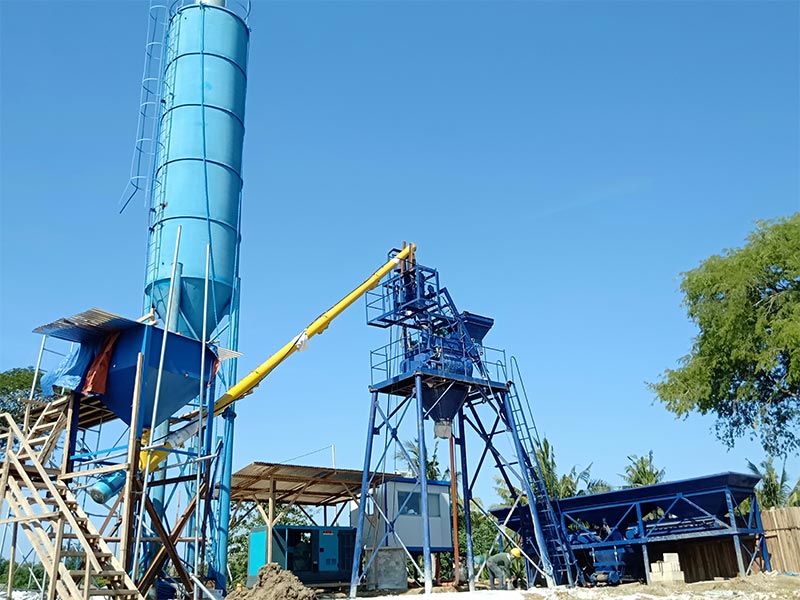Feb. 07, 2024
At Henan Shengmao, we prioritize safety above all else. As experts in the concrete batching plant industry, we understand the critical importance of adhering to safety measures and regulations to ensure the well-being of workers and the surrounding environment. In this comprehensive guide, we will delve into the essential safety protocols and regulations that every concrete batching plant operator must follow.

Before we delve into safety measures, let's briefly understand what concrete batching plants are and how they function. Concrete batching plants are facilities that mix various ingredients to form concrete, including cement, water, aggregate, and additives. These ingredients are accurately measured and combined in predetermined proportions to produce high-quality concrete for construction projects.
Operating a concrete batching plant involves various risks, including exposure to hazardous materials, heavy machinery, and potential accidents. Implementing robust safety measures is crucial to mitigating these risks and ensuring a safe working environment for all personnel involved. Additionally, adhering to regulations not only protects workers but also helps companies avoid costly fines and legal repercussions.
Before commencing operations, it's essential to ensure that the horizontal batching plant site is properly prepared and laid out. This includes:
Clearing the area of any obstacles or debris.
Establishing designated zones for different activities, such as mixing, loading, and storage.
Implementing proper drainage systems to prevent water accumulation.
Regular inspection and maintenance of equipment are paramount to prevent malfunctions and accidents. Key steps include:
Conducting daily pre-start checks on machinery to identify any potential issues.
Ensuring that all equipment, including mixers, conveyors, and silos, is properly maintained and serviced according to manufacturer recommendations.
Promptly addressing any defects or malfunctions to prevent further damage or safety hazards.
Proper training and certification are vital for all personnel working in or around the batching plant. Training should cover:
Safe operating procedures for equipment and machinery.
Emergency protocols, including evacuation procedures and first-aid training.
Handling of hazardous materials, such as cement and chemicals, with appropriate protective gear.
Featured content:Concrete batching plants handle various hazardous materials, including cement, admixtures, and aggregates. Safety measures for handling these materials include:
Providing adequate ventilation systems to prevent exposure to harmful fumes.
Storing hazardous materials in designated areas with proper labeling and containment measures.
Implementing spill response procedures and having suitable absorbent materials on hand to contain spills quickly.
Concrete batching plants must comply with environmental regulations to minimize their impact on the surrounding ecosystem. Key considerations include:
Proper waste management practices, such as recycling concrete waste and disposing of hazardous materials responsibly.
Implementing dust control measures, such as installing dust collectors and water sprays, to reduce airborne particles.
Monitoring air and water quality to ensure compliance with regulatory standards.
In addition to internal safety measures, Dry mix concrete batching plants must adhere to relevant regulations and standards set forth by local authorities and industry organizations. These regulations may cover:
Zoning and land use permits for the establishment of batching plant facilities.
Environmental permits to ensure compliance with air and water quality standards.
Occupational health and safety regulations governing worker protection and welfare.
Ensuring the safety of concrete batching plant operations requires a comprehensive approach that encompasses site preparation, equipment maintenance, employee training, and regulatory compliance. By prioritizing safety measures and adhering to regulations, batching plant operators can create a secure working environment and mitigate potential risks.
Featured content:Previous: Essential Questions to Consider When Purchasing a Diesel Dump Truck
Next: None
Related Articles
If you are interested in sending in a Guest Blogger Submission,welcome to write for us!
All Comments ( 0 )